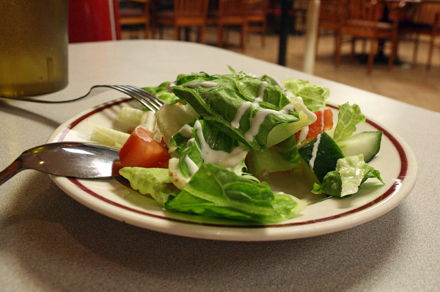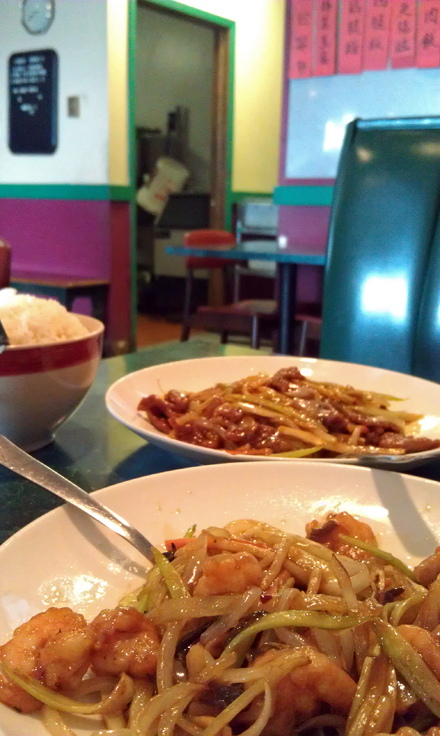Jeff Korbelik has written up a nice story about ESPNU (and former KLKN) anchor Dari Nowkhah's fundraising efforts
to honor the death of his infant son. The rant in which I'm about to engage doesn't have anything to do with the overall topic of the article, but does involve something in the article. Please go read it and, if you are so inclined,
chip in. Then come back here and watch me be cranky.
Back?
I want to draw your attention to this paragraph:
A month later, he and his wife, Jenn, whom he met in Lincoln, welcomed their third child, Hayden Michael, into the world. The Nowkhahs have a 6-year-old son, Nicolas, and 2-year-old adopted daughter, Nahla.
Unremarkable, right? For most people that's probably the case. For me it features an all-too-frequent sin that I wish would go away. See it yet?
The paragraph describes a family's three children: an infant and two older children. The oldest is described as "a 6-year-old son". The middle child, on the other hand, is a "2-year-old adopted daughter". She's not just a daughter, she's an
adopted daughter. The author wants you to know that she is different in a very important way.
I
asked Mr. Korbelik about his word choice:
@LJSjeffkorbelik Is his "2-year-old adopted daughter" less his child than his "6-year-old son"? If not, why the implied pejorative?
And
he replied:
@MrWilson Nope. Just wanted to make a (good) point about adoption.
A friend had suggested that perhaps Korbelik was trying to make Mr. and Mrs. Nowkhah look more noble so as to help their fundraising, and Korbelik more or less confirmed that theory. Yet in many ways Korbelik's explanation rings hollow. He says he was trying to "make a ... point", but how does a single, context-free adjective make a point about
anything? It doesn't. It can't. As the story was written, Mr. Korbelik merely labeled the daughter in a way that, in many folks' eyes, has pejorative connotations. He didn't make a point about adoption and he didn't try.
In an appropriate context there is not anything wrong with saying that a person was adopted. It's true, after all, and sometimes it's relevant to the conversation. In this case, little Nahla's origins have nothing to do with the story. The story is about a family's response to tragedy. Inserting an extra adjective into the daughter's introduction serves only to assert to the reader that she is different from her siblings. And for what purpose? Certainly not one that serves the story he tried to tell.
Imagine having been adopted and seeing youth described as either "children" or "adopted children". Think for a moment about the consequences that has on a child's self-perception. How would you like to be constantly reminded that you are an outsider. You aren't a "real" child of that family. Your siblings aren't your "real" siblings. You're still loved, of course! There's nothing wrong with having been adopted and you're exactly the same as everybody else! But you get a label that other kids don't get.
Many of you can relate from a different angle. How many of you have married somebody who was previously married to somebody else? Imagine for a moment that every time you are introduced, you are introduced as your spouse's "second husband/wife". At every gathering you hear "This is Mary, and this is Mary's second husband Bob". You're exactly the same as a regular ol' husband! You're just as good! But you get a label.
The unnecessary labeling of adopted children isn't something unique to Jeff Korbelik. Not by a long shot. News media seem to love to describe children as adopted, relevance to the present circumstances be damned. Nor was his mistake as horrible as it could have been. As one example, he could have made things far worse by talking about the Nowkhah's adopted daughter and "their own" 6-year-old son. I see that a lot and it's maddening. If you're the sort who talks about a family's "own" children versus their "adopted" children, knock it off.
Children who were adopted are, to the family to which they belong, nothing more and nothing less than sons and daughters. To imply anything else -- even with benevolent intent -- is to insult the family. It's not that the word "adopted" is bad, nor, of course, is it bad to have been adopted. But words carry weight, and labels are particularly heavy.
I ask that Jeff Korbelik and the entire Journal Star staff think about the burdens they place on individuals when they hang labels around their necks. And don't forget that labels affect even those to whom they haven't been directly applied. Is the label relevant? Is it important? Does it advance the story in a meaningful way? In this case of Mr. Korbelik's use of the word "adopted", the answer to all three questions is no. It does not "make a (good) point about adoption", as was his goal.
 EDIT: Unsolved!
EDIT: Unsolved!
 EDIT: Solved!
EDIT: Solved!
 EDIT: Solved!
EDIT: Solved!